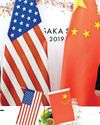
By 7:30pm on February 25, more than 72 hours after a group of women had blocked the road outside the Jaffrabad metro station to replicate the protest against the Citizenship (Amendment) Act at Shaheen Bagh, authorities used a time-tested technique to tackle the agitators—a nudge and a push. Hours earlier, community elders had visited the spot and local mosques had appealed to the protesters to disperse, saying that their names were being used to incite violence in the city and discredit the movement. Finally, the police swooped in, asking the protesters to clear the area or move to nearby Seelampur, where a similar sit-in by women had been on for a month, but which had not blocked the key arterial road.
Unfortunately, the textbook technique was used too late. For the past three days, the densely populated North East Delhi, which shares its border with Ghaziabad in Uttar Pradesh, had been on fire. Groups of young, armed men had clashed, killing and maiming, setting religious places on fire and burning shops. What started as a flareup between the pro- and anti-CAA camps had turned into communal riots. At least 27 people lost their lives, including two security personnel, in the worst episode of violence in the capital since the 1984 anti-Sikh riots. The Delhi Police, which had failed to prevent the riots then, were found wanting again. They were outnumbered and were, at their worst, mute spectators.
All this happened as India was hosting US President Donald Trump, who, on his maiden official visit, was taken to two places closely associated with Mahatma Gandhi—Sabarmati Ashram and Rajghat. By the time Trump left, Gandhi’s enduring message of non-violence lay in tatters.
This story is from the {{IssueName}} edition of {{MagazineName}}.
Start your 7-day Magzter GOLD free trial to access thousands of curated premium stories, and 9,000+ magazines and newspapers.
Already a subscriber ? Sign In
This story is from the {{IssueName}} edition of {{MagazineName}}.
Start your 7-day Magzter GOLD free trial to access thousands of curated premium stories, and 9,000+ magazines and newspapers.
Already a subscriber? Sign In

The female act
The 19th edition of the Qadir Ali Baig Theatre Festival was of the women and by the women

A SHOT OF ARCHER
An excerpt from the prologue of An Eye for an Eye

MASTER OF MAKE-BELIEVE
50 years. after his first book, Jeffrey*Archer refuses to put down his'felt-tip Pilot pen

Smart and sassy Passi
Pop culture works according to its own unpredictable, crazy logic. An unlikely, overnight celebrity has become the talk of India. Everyone, especially on social media, is discussing, dissing, hissing and mimicking just one person—Shalini Passi.

Energy transition and AI are reshaping shipping
PORTS AND ALLIED infrastructure development are at the heart of India's ambitions to become a maritime heavyweight.

MADE FOR EACH OTHER
Trump’s preferred transactional approach to foreign policy meshes well with Modi’s bent towards strategic autonomy

DOOM AND GLOOM
Democrats’ message came across as vague, preachy and hopelessly removed from reality. And voters believed Trump’s depiction of illegal immigrants as a source of their economic woes

WOES TO WOWS
The fundamental reason behind Trump’s success was his ability to convert average Americans’ feelings of grievance into votes for him

POWER HOUSE
Trump International Hotel was the only place outside the White House where Trump ever dined during his four years as president

DON 2.0
Trump returns to presidency stronger than before, but just as unpredictable